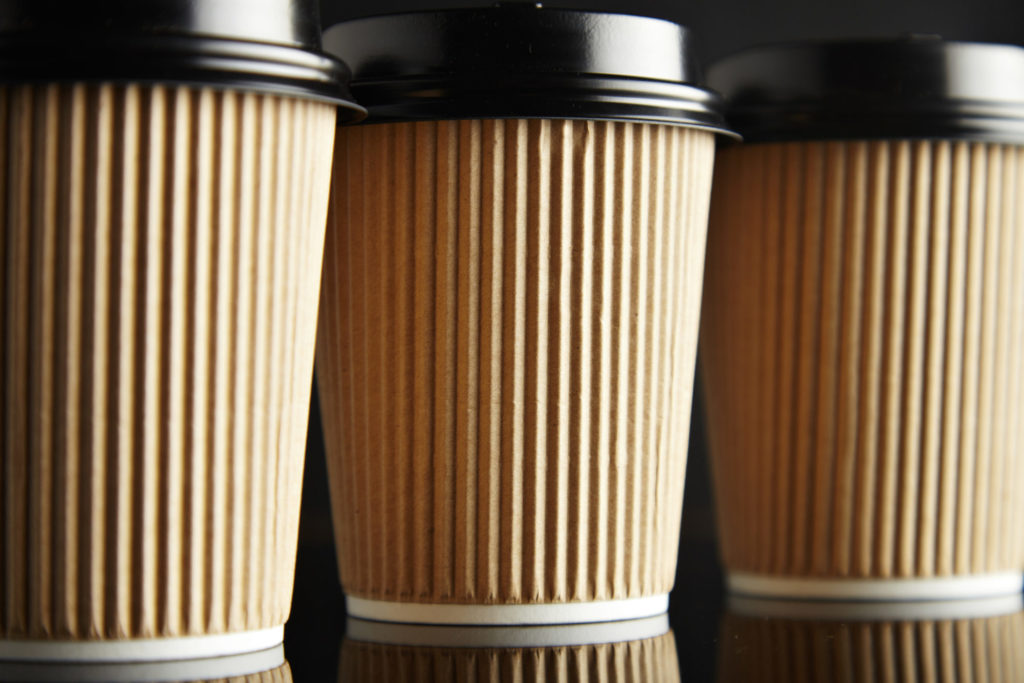Solo households are thought to be leading the way in sustainable living. While we wait for government and industry to take much-needed action, a simple change in our own habits will help make a difference to reduce landfill waste caused by our love for takeaway drinks. If you are accustomed to a regular hot drink from your favourite coffee shop, here are 8 reasons why we should invest in a reusable travel cup.
Solo households are thought to be leading the way in sustainable living. While we wait for government and industry to take much-needed action, a simple change in our own habits will help make a difference to reduce landfill waste caused by our love for takeaway drinks. If you are accustomed to a regular hot drink from your favourite coffee shop, here are 8 reasons why we should invest in a reusable travel cup.
8 Reasons To Carry A Travel Cup
Sustainable Living| 24th February 2018 by Sarah Myers

1 The problem is HUGE!
In the UK we throw away some 7 million disposable coffee cups every single day—and very few of them are recycled. They’re piling up in landfills all over the country.
An estimated 2.5 billion cups are discarded each year, and only 1 in 400 are recycled. Even though disposable cups are made almost entirely of paper, they’re not 100% paper, and therein lies the problem.
2 Most disposable cups are not easily recycled
3 Mounting impact and pressure on landfill

4 Government and industry solutions will take time to come into force
The Scottish Government announced an intention to review and find a Scottish solution to ‘throwaway culture’ and the use of disposable cups and plastics in a holistic way, guided by the mantra Reduce, Reuse, Recycle. The House of Commons is also looking into the issue through The Environmental Audit Committee’s inquiry. So far, devolved and national proposals may include levies from 5 pence to 25 pence per purchase. Labelled the ‘latte levy’, there may also be the expectation that all disposable cups can be recycled by 2023.
However, it could be years before we see a UK wide solution to the problem and the question is, is government able to solve the problem without the contribution of industry and consumers?
5 Proposed levies will not solve the problem
6 Much needed solutions create new problems to be solved
If reducing and recycling can’t solve the problem, perhaps a new kind of plastic can. UK manufacturer Biome Bioplastics announced the development of a new plant-based plastic that works just as well as conventional plastic but is fully recyclable and compostable.
Slowly being introduced mainly through independent coffee shops, it has been suggested the UK currently lacks the capacity the deal with biodegradable cups because of inadequate composting facilities. So, while new materials are being developed, when it comes to the recycling chain and journey, we need to find and accommodate new solutions for recycling.
7 Some chains offer a discount when you bring a travel cup
8 It’s time for change. Be part of it and make a difference
Since the issue of disposable coffee cups flew high in our awareness at the turn of the year, sales of reusable travel cups has soared! Perhaps incentivised by the prospect of a 25 pence ‘latte levy’ or wanting to take action, it shows we can do small things helping to make a big difference.
Does Sustainable Living Improve Our Wellbeing?
How to Find Work More Fulfilling?
Share this post:
Hear from Solo Living now and then by signing up to our mailing list


















